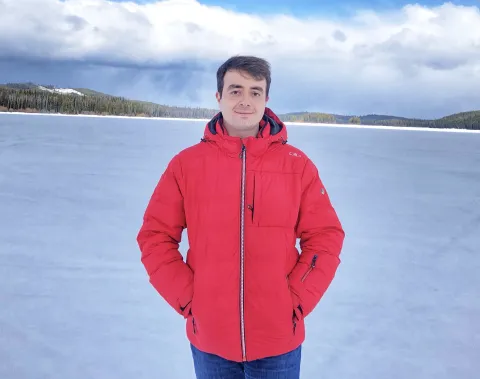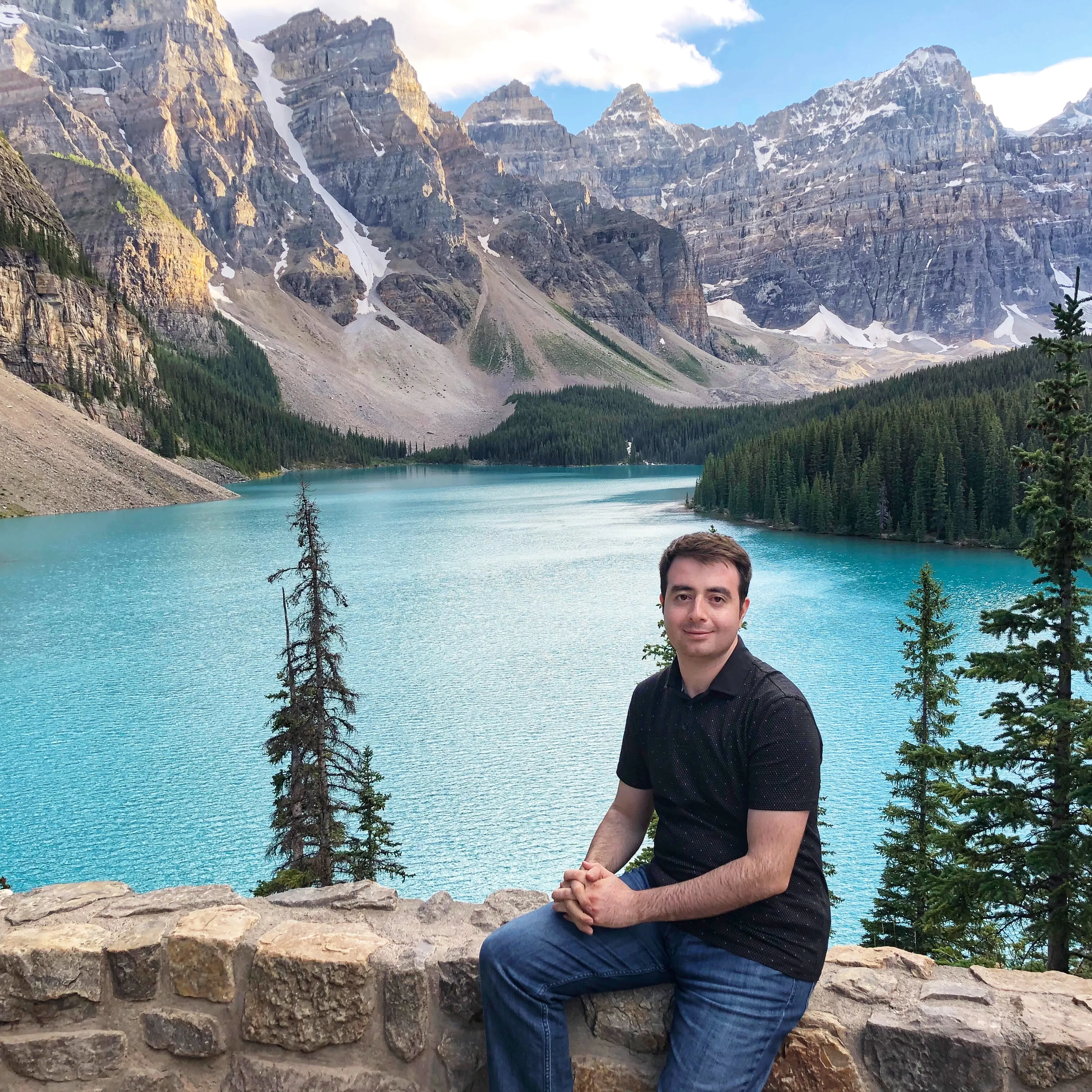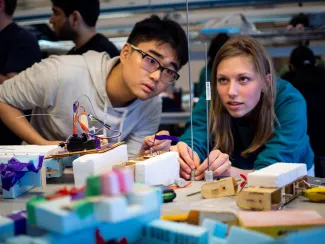"Enjoy what you are doing and embrace the hardships ASAP. If you try to escape now, you will face with stronger versions later on."

Sajjad Mohammadnejad Daryani
- Degree:
- Doctor of Philosophy
- Grad year: 2021
- Program:
- Campus: Okanagan
Hi there! I am Sajjad, a Ph.D. candidate in Mechanical Engineering working on Combustion. I was born and raised in Shabestar, an incredibly scenic and peaceful city in Iran. I moved to Tehran to study B.Sc. and M.Sc. at the Amirkabir University of Technology (Tehran Polytechnic). It is one of the best universities in Iran, which helped me obtain lots of knowledge and experience in mechanical engineering. Then, I moved to Canada to study Ph.D. at the University of British Columbia, which is one of the best and well-known universities in the world. And, here I am! Nearing the end of my Ph.D. program, filled with lots of hopes, goals, and a thirst for success.
Why did you choose to go into your field of study at UBC?
Fire is always my favourite element. The heat, the light, the turbulent shape, the peaceful sound, the power it generates, the energy it provides, you know, everything about the fire is interesting. Not to mention doing a barbecue on it! Even when I was a kid, I loved starting a fire in our garden and I am not going to tell you how many times it was so close to burn the entire garden! Anyway, this is how I got interested in mechanical engineering and combustion! In my M.Sc., I worked on one of the applications of combustion, i.e. the internal combustion engines. However, I always wanted to work on combustion itself as well. I did a little bit of research and noticed that there was a Ph.D. position available at UBC which aligned well with my interests. I applied and fortunately, I was accepted. Today, I cannot be any happier for studying what I am passionate about where I always desired to be.
What has made your time at UBC memorable?
Working on what I am interested in, in one of the best universities in the world, under the supervision of Dr. Sina Kheirkhah. The amount of skills and experience I have obtained during my Ph.D. is not comparable with any period of time in my entire life and my supervisor played a pivotal role in this process. Also, British Columbia is a part of heaven. Kelowna for example; what do you expect to see that already does not exist there? Mountains? Lakes? Ski resorts? Forests? Rivers? Nice weather? Four complete seasons? This is another point that made my life enjoyable and memorable here. I could go and camp in nature on weekends and throw my stress away. Even in the university itself, when you got stuck in something, it is enough to just look out of the window for a couple of minutes, and then you are all fresh.

Tell us about your experience in your program. What have you learned that is most valuable?
We performed some collaborations with the National Research Council (NRC) of Canada, Siemens Energy, and Fortis BC, which helped me gain lots of experience in Turbulent Premixed Combustion. Specifically, I performed two measuring campaigns at the Gas Turbine Laboratory of the NRC in Ottawa, which were very fruitful. Sophisticated experimental facilities at NRC helped us study the hydrogen-enriched methane-air turbulent premixed flames. For example, we have challenged the Flamelet assumption, which is commonly utilized in the estimation of the flame burning rate as well as the simulation of the turbulent premixed flames. In addition to my supervisor, the NRC people also helped me considerably in conducting the necessary experiments and publishing the articles. I want to take the chance to say thank you to all of them and especially to my supervisor Dr. Sina Kheirkhah.
What advice would you give a student entering your degree program?
Never underestimate yourself and know that anything will be possible if you put a great effort into it. It is okay to sometimes feel you got stuck in something, or nothing is moving forward. Just keep up your hope and effort; soon you are going to get out of that situation.
Where do you find your inspiration for using your degree to make an impact on our world?
My goals and the interest I have in my field are the main things keeping me moving forward. However, hardships that one needs to overcome always exists, and sometimes you need help from other people. Especially, when you are an international student, you are usually far from your family and relatives. Three important sources help me tolerate the existing hardships and keep my hope; talking to my family over the phone, spending time with my friends, and more importantly, trying to be spiritually connected with God.
What are your future plans to make a difference in our world?
My ultimate goal is to make the earth and other planets better places to live! The former will be possible by developing technologies to reduce and prevent pollution and global warming. The latter will be feasible if first we develop and enhance technologies to leave the earth and settle in somewhere else. Both of these are highly relevant to what I have done in my Ph.D. and hopefully, I will continue working on these goals in the future as well.




